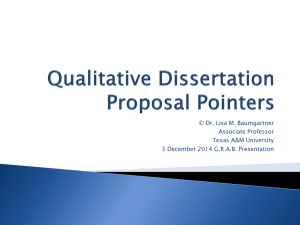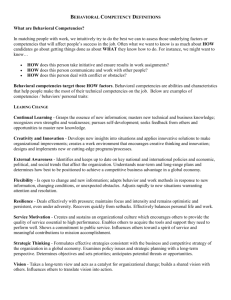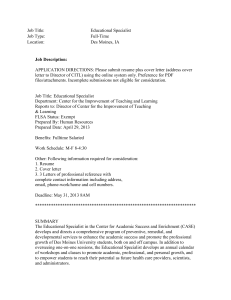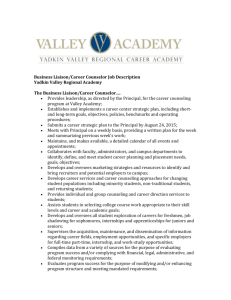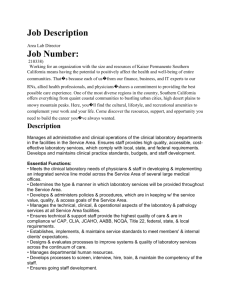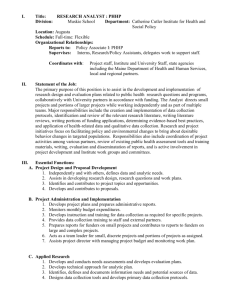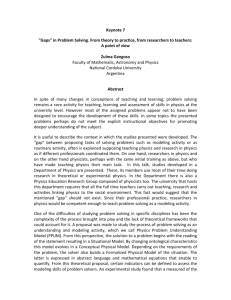Sample EdD - PhD Comparison Charts from CPED institutions
advertisement
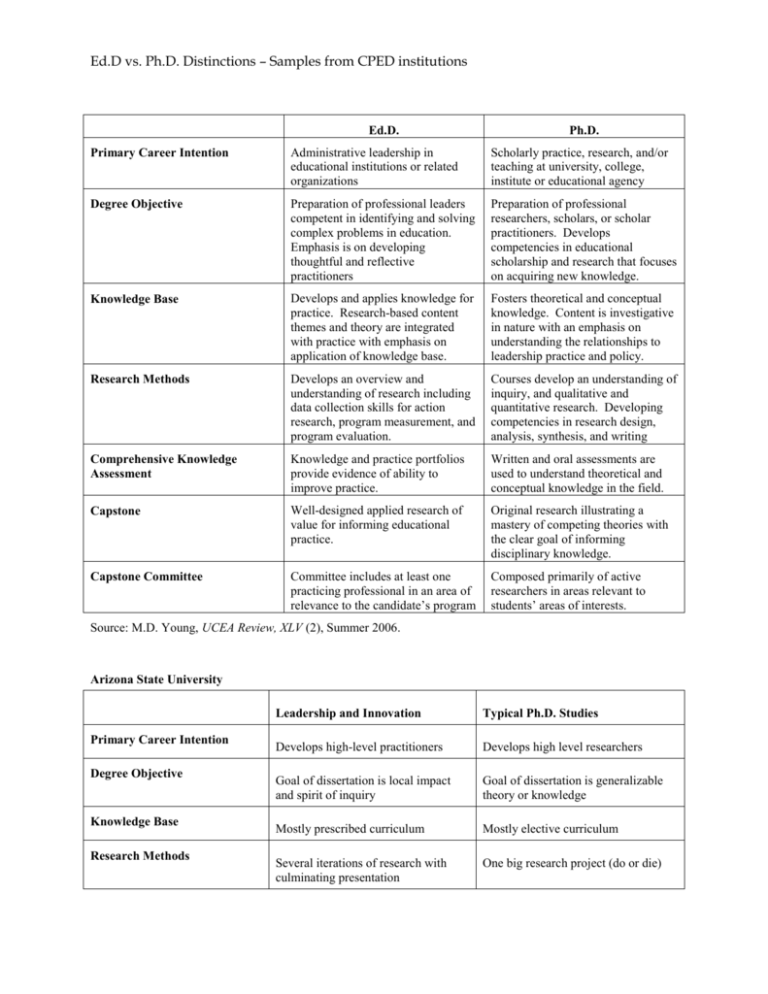
Ed.D vs. Ph.D. Distinctions – Samples from CPED institutions Ed.D. Ph.D. Primary Career Intention Administrative leadership in educational institutions or related organizations Scholarly practice, research, and/or teaching at university, college, institute or educational agency Degree Objective Preparation of professional leaders competent in identifying and solving complex problems in education. Emphasis is on developing thoughtful and reflective practitioners Preparation of professional researchers, scholars, or scholar practitioners. Develops competencies in educational scholarship and research that focuses on acquiring new knowledge. Knowledge Base Develops and applies knowledge for practice. Research-based content themes and theory are integrated with practice with emphasis on application of knowledge base. Fosters theoretical and conceptual knowledge. Content is investigative in nature with an emphasis on understanding the relationships to leadership practice and policy. Research Methods Develops an overview and understanding of research including data collection skills for action research, program measurement, and program evaluation. Courses develop an understanding of inquiry, and qualitative and quantitative research. Developing competencies in research design, analysis, synthesis, and writing Comprehensive Knowledge Assessment Knowledge and practice portfolios provide evidence of ability to improve practice. Written and oral assessments are used to understand theoretical and conceptual knowledge in the field. Capstone Well-designed applied research of value for informing educational practice. Original research illustrating a mastery of competing theories with the clear goal of informing disciplinary knowledge. Capstone Committee Committee includes at least one practicing professional in an area of relevance to the candidate’s program Composed primarily of active researchers in areas relevant to students’ areas of interests. Source: M.D. Young, UCEA Review, XLV (2), Summer 2006. Arizona State University Primary Career Intention Degree Objective Knowledge Base Research Methods Leadership and Innovation Typical Ph.D. Studies Develops high-level practitioners Develops high level researchers Goal of dissertation is local impact and spirit of inquiry Goal of dissertation is generalizable theory or knowledge Mostly prescribed curriculum Mostly elective curriculum Several iterations of research with culminating presentation One big research project (do or die) Ed.D vs. Ph.D. Distinctions – Samples from CPED institutions Comprehensive Knowledge Assessment Capstone Continuous support from courses and Learner Scholar Community Individual work with faculty adviser Most research skills learned just-intime as needed; Action research embedded in coursework Research classes first, then dissertation Capstone Committee University of Florida (former member) Ph.D. Ed.D. Theory testing Theory description Hypotheses generated from theory Questions or hypotheses generated from a perspective to yield information for decisionmakers. Primary target audience = community of scholars The primary target audience= educational decision-makers. Discussion of results must include a section on how the present findings extend the body of knowledge. Discussion of results must include a section dealing with implications for practice. Hypotheses are derived directly from a theoretical position. A question of practical importance is addressed. Sample is selected from multiple sites Sample may be drawn from a single site One or more outcome variables are Outcome measures are often developed by the measured by standardized instruments, or researcher. procedures well-documented in research literature. In studies of educational interventions, quasi experimental or experimental designs are employed to permit causal inferences. In studies of intervention existing intact groups are often studied in field settings because the primary goal is to evaluate a treatment in a particular setting or institution. Methods of analysis are commensurate with those currently used in leading scholarly research journals in education. Data analytic methods consonant with instruction in the Ed.D. core may be employed. (e.g., t- tests, Chi-squares, correlations, one-way ANOVA). Discussion of the findings emphasizes the theory or theories that provided the impetus for the study. Discussion must contain implications for practice that are logically derived from the study findings. Ed.D vs. Ph.D. Distinctions – Samples from CPED institutions University of Missouri-Columbia Ed.D Ph.D. Degree Objectives Preparation of professional leaders competent in identifying and solving complex problems in education. Emphasis is on developing thoughtful and reflective practitioners. Preparation of professional researchers, scholars, or scholar practitioners. Develops competence in conducting scholarship and research that focuses on acquiring new knowledge. Intended Professional Career Managerial or administrative leadership in educational institutions or related organizations (e.g. educational administrator, staff developer/trainer in educational settings or curriculum director.) Scholarly practice, research, or teaching at university, college, institute or educational agency. Knowledge Base Develops knowledge for practice. Content themes are integrated with practice with emphasis on application of knowledge base. No course work required outside college. Fosters theoretical and conceptual knowledge. Content is investigative in nature with an emphasis on understanding the relationships to practice. Related work required outside college. Research Methods Develops an overview and understanding of research including data collection skills for educational administrators action research, and program measurement and evaluation. Could include work in management statistics and analysis. Courses are similar to those for doctoral students in related disciplines. Courses develop an understanding of educational inquiry as well as qualitative and quantitative research. Focus is on developing competencies in research analysis, synthesis and writing. Internship A field internship or experience appropriate for intended professional career. Students demonstrate proficiency in program evaluation as part of the experience. Complete internships in both college teaching and research. Comprehensives Based on a knowledge and practice portfolio. Provides evidence of ability to improve practice based on theory and research as well as demonstration of competencies. Evaluate an understanding of the theoretical and conceptual knowledge in the field. Portfolio based, emphasizing the relevance to practice. Evaluates competence in conducting research to acquire new knowledge. Ed.D vs. Ph.D. Distinctions – Samples from CPED institutions Thesis Well-designed applied research with substantial value for informing educational practice. Reflects the theory or knowledge for addressing decision-oriented problems in applied settings. Thesis Committee Should include at least one full-time practicing professional in area of relevance to student program. Original research illustrating a mastery of competing theories with the clear goal of informing disciplinary knowledge. Composed primarily of active researches in areas relevant to students’ areas of interest. Should include at least one faculty member from a related discipline.
